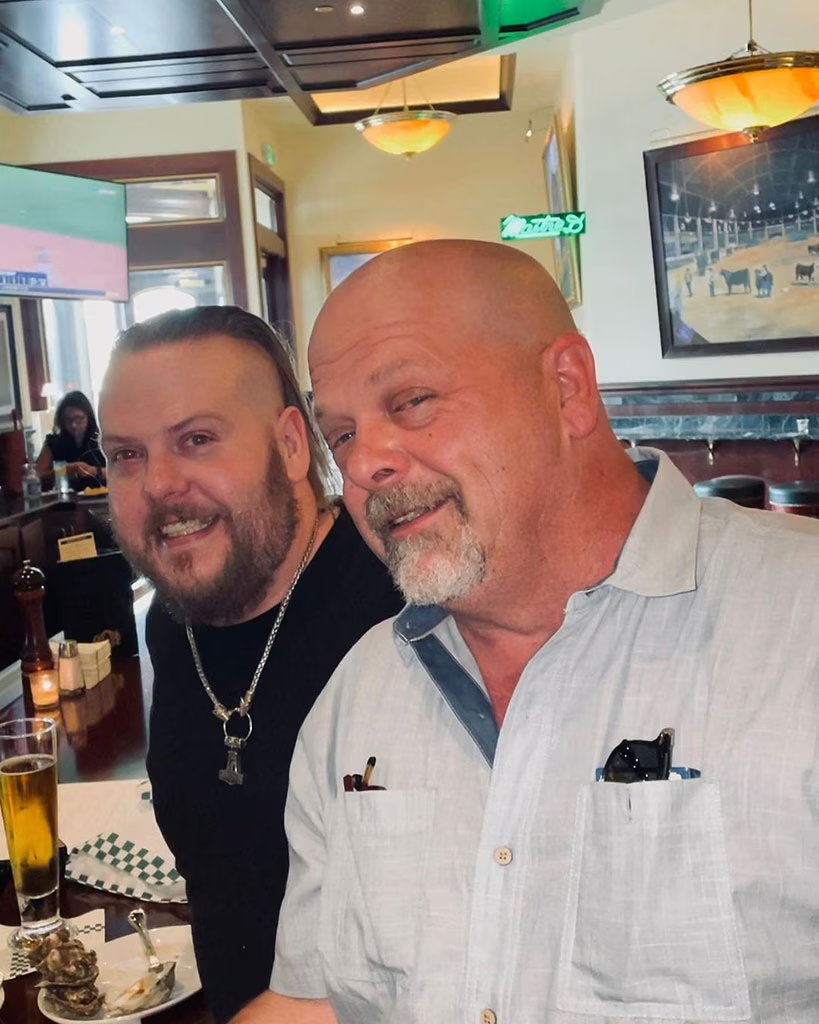Rick Harrison, the well-known host of the reality television show *Pawn Stars*, recently opened up about his journey of healing and coping with the profound grief following the death of his son, Adam Harrison, who passed away on January 19, 2024, at the age of 39 due to a fentanyl overdose. This report examines Rick’s reflections on grief, the complexities of addiction, and the importance of cherishing family connections.
Adam Harrison struggled with addiction for many years, facing challenges that led Rick to seek help for him multiple times through rehabilitation programs. Despite these efforts, Adam’s battle with substance abuse ultimately culminated in a tragic overdose involving fentanyl, a potent opioid that has become a significant concern in the realm of public health. The devastating impact of this loss has forced Rick to confront his feelings of guilt and self-doubt, emotions that are common among parents who have lost children to addiction.
In a candid interview on *In Depth With Graham Bensinger* on March 19, 2025, Rick shared that he thinks about Adam every day. He expressed the emotional toll of losing a child, stating, “When you lose a kid, you second guess f–king everything.” This sentiment encapsulates the relentless cycle of questioning that often accompanies grief, particularly in the context of addiction. Rick’s reflections reveal a deep sense of remorse, as he grapples with thoughts of whether he could have done more to save his son.
Rick’s narrative highlights the complexities of addiction and the challenges faced by families. He revealed his attempts at “tough love,” including having Adam arrested in hopes that it would lead to recovery. However, he now questions whether these actions were adequate or effective. This illustrates a common dilemma faced by families dealing with addiction: the struggle between enabling behavior and the desire to impose boundaries for the sake of recovery.
In the aftermath of Adam’s death, Rick has shifted his focus toward celebrating the positive memories he shared with his son. He emphasizes the importance of treasuring moments with his surviving children and grandchildren. Rick stated, “I think about the good times… I spend as much time with my kids as I can.” This proactive approach to grief underscores the significance of familial bonds and the healing power of shared experiences.
Rick’s journey through grief has imparted valuable lessons about the fragility of life. He encourages others to appreciate their loved ones, asserting, “Appreciate what you got, cause you’re not always going to have it.” This message resonates deeply in a society grappling with the impacts of addiction and loss, serving as a reminder to prioritize relationships and moments of joy.
Rick Harrison’s reflections on his son Adam’s death reveal the profound complexities of grief, particularly in the context of addiction. His candid acknowledgment of guilt, coupled with a commitment to cherish family connections, highlights the dualities of loss and love. As he navigates this challenging emotional landscape, Rick serves as a poignant reminder of the importance of empathy, understanding, and the enduring bonds of family.
In sharing his story, Rick Harrison not only honors his son’s memory but also provides a voice to the countless families affected by addiction. His journey underscores the necessity of open dialogue around these issues, fostering a culture of support and healing for those grappling with similar experiences.


